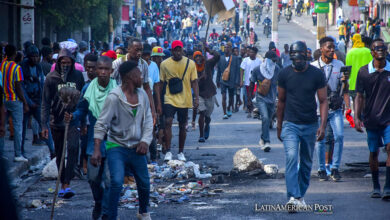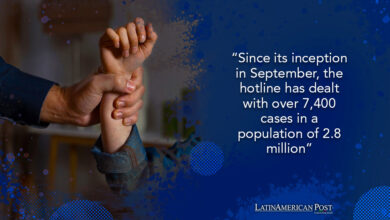Women Will Now Be Able To Denounce Violence in Their Own Language or Dialect
GenderLab, together with the Pontifical Catholic University of Peru, developed a Quick Action Guide to report acts of violence against women in that country.

The Woman Post | Silvia Manuela Gutiérrez Rodríguez
Listen to this article
Read more content like this at: thewomanpost.com
One of the biggest problems is that the victims do not have information about their rights to file complaints, in addition to the fact that the people close to them do not have the tools to accompany them.
This guide, this time, seeks to be accessible for Quechua speakers, Aymara speakers, and people with visual or hearing disabilities, also having an audiobook version, so that the rights of women are clear and that the violation of these decreases since the objective is that women have the pertinent information on the protection of their physical, mental, and psychological integrity.
This guide informs about women complainants’ rights and offers legal arguments to demand them. In addition, it provides guidelines for action and key information for people who are witnesses, or companions, of situations of violence.
It is clear that reporting acts of violence is a difficult process for people who are forced to go through it, and this is where it is important to emphasize the relevance of the various support networks, as they play a fundamental role in accompanying these cases of violence and violation of rights.
Thus, on this occasion, the guide provides a simple explanation of the route that a complaint of violence against women follows before the Peruvian authorities; which facilitates the understanding of laws, concepts, or other contexts, taking into account that it is aimed at a public not specialized in the subject. Thus, the guide explains topics such as: where can I file a complaint, what can they ask me, and how can they protect me, among other fundamental questions when these types of violations occur.
Although there are gender equality biases, this, from the perspective of language barriers, is highlighted, above all, towards some groups, such as Quechua-speaking women in different regions; for them, the offer of technical legal advice or professional support may be more limited due to these same communication barriers.
In this framework, there are a series of obstacles and restrictions that prevent women from their right to access justice on an equal footing; those obstacles are produced in a structural context of discrimination and inequality since language and disability are included among the causes of intersectional discrimination, which makes access to justice difficult for this group of women.
Due to this, the dissemination of information, which can help both women and those who follow their cases, must be thought of from an inclusion and intersectionality perspective, so that the entire Peruvian population can access this information to reach the respective defender of their rights.
To this extent, it is essential to recognize and address the needs that women, from their diversity, must face when dealing with a specific event, such as access to justice in cases of violence. For this reason, the contribution made by the Pontifical Catholic University of Peru, in partnership with GenderLab, to the dissemination in different languages, including sign language, of the rights of women who report acts of violence, is important and necessary if society wants to ensure the well-being of women, erasing communication barriers of language, another important aspect when talking about rights, equality, justice, and visibility.


